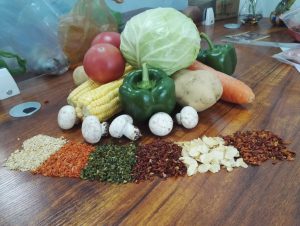The Processing Technic of Dehydrated Vegetables
Fresh vegetables are high in water content, large in volume size and crisp in texture, on the one hand they are difficult to reserve, on the other hand they cost a lot to transport and may get more damaged during the way. With dehydrated vegetables we get all these problems solved, we get long shelf life of vegetables, and also saved a lot during the transportation.
The technic of dehydration has changed and got improved a lot, from family workshop process to large-scale industrialized manufacture, it has entered a whole new field in modern society. According to different requirements on dehydration, there are many ways to make it, the most commen three ones are:
- Natural drying: Using natural sunlight and hot wind to dry vegetables, but its quality is hard to guarantee because the limitation of time, weather and sanitary conditions.
- Air drying (AD). Initially people use coal, charcoal, wood, crop straw etc, to burn and to provide heat to dry vegetables. While the veg.’s original nutrition somehow has got destoryed in the drying and the product is not clean, so this method was abandoned recently, people choose high temperature high-pressure steam from boiler heating, which will be tranferred by pipeline to the radiator, then exhaust fan will blow hot wind to heat the vegetables. So most water content will be removed and the veg.’s original taste is obtained, the product is clean and safe to consume. Most people now use this drying method to process vegetables.
- Freeze drying (FD). People make it by rapidly freezing and then subjecting it to a high vocuum which removes ice by sublimatioin, the veg. has no change in nutritional facts and shape size, they are also natural processed without any additives, this method is advanced and also expensive, normally is applied to process products for high quality.
During years nearby there are also some other new methods like microwave drying, infrared drying, depression drying, but they are only used in a few industries.
Welcome your any following questions or feedback to discuss the process ways, thank you for your concern!



